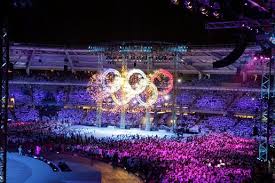By David Owen
December 5 – Any last flickering prospect of a re-run of the race for the 2022 Winter Olympics, in a move that could conceivably have sparked the emergence of a southern hemisphere candidate and freed up the January-February time-slot for the FIFA World Cup, has been snuffed out by the announcement of a lucrative new TV deal by the International Olympic Committee (IOC).
The IOC has awarded exclusive rights to screen the next four Games after Rio 2016 in China to the state broadcaster, China Central Television (CCTV).
The price tag is believed to be some $550 million, more than double the sums agreed for the four editions of the Olympics between Vancouver 2010 and Rio 2016. This price reflects both Asia’s monopoly of Olympic hosting rights between 2018 and 2022 and, in particular, the Chinese capital Beijing’s status as hot favourite for the 2022 Games, in a contest now pitting it solely against the Kazakh city of Almaty.
The beguiling novelty of a Winter Olympics in the northern hemisphere summer would have eased FIFA’s dilemma as it struggles to identify an acceptable time-slot for its own flagship tournament in 2022 that would enable teams – and fans – to avoid host nation Qatar’s fearsome summer heat.
European club football’s midwinter break means that a January/February tournament would probably be less disruptive to the standard football calendar than a date around the end of the year. FIFA President Sepp Blatter has, however, promised that the tournament would not be played in those months, saying that this would be “totally disrespectful” to the Olympic family.
A new issue – the IOC’s reluctance to allow Blatter to remain a full member beyond its mandatory retirement age of 80 – has prompted speculation (including by me) that the FIFA President might be tempted to use the threat of a clash between these two great sporting events to try to get his way on that age issue. There can be little doubt, after all, that the Winter Olympics would suffer more from such a clash.
If Blatter is to play such an audacious card, he will need to do so on December 8 and 9 at the IOC Session in Monaco where IOC President Thomas Bach’s 40 Agenda 2020 reform proposals are to be discussed and voted on by the IOC membership. There has, to be fair, been no indication to date that the FIFA President harbours any such thoughts. With so many movers and shakers of world sport converging on the well-heeled, Mediterranean-coast Principality, however, it seems a safe bet that the 2022 timing conundrum will be a topic of conversation at least in the well-thronged corridors and bars.
Contact the writer of this story at moc.l1734895438labto1734895438ofdlr1734895438owedi1734895438sni@n1734895438ewo.d1734895438ivad1734895438

